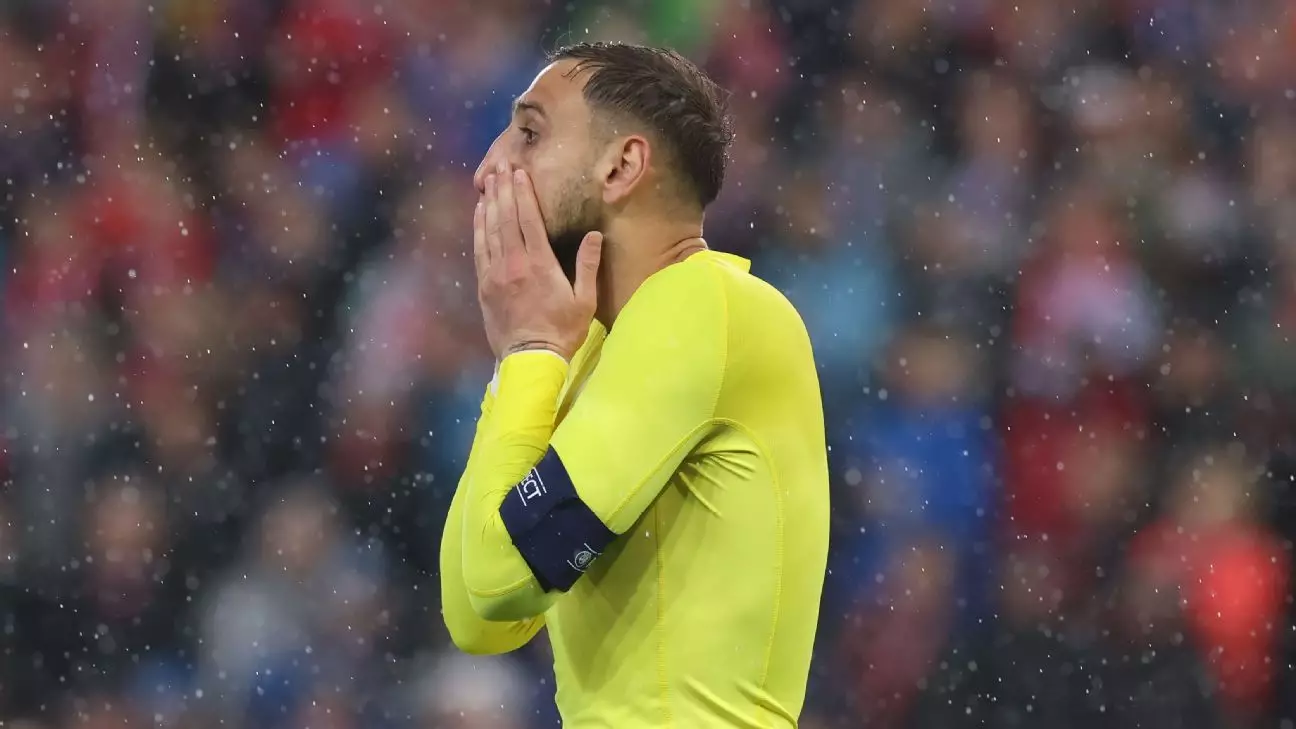Reviving the Spirit: Italy’s Quest for Redemption in World Football
There’s something truly magical about the Azzurri – a team steeped in history, with a legacy that is both glorious and daunting. As an ardent fan of Italian football, I’ve often found myself swept away by the passion and pride that accompanies each match. Yet, the recent challenges have brought about a period of introspection. Watching Italy’s national team struggle in recent years has been a poignant experience, one that resonates deeply with fans who have celebrated their triumphs and now endure their tribulations.
The echoes of past victories are still fresh in the minds of many. With four World Cup titles adorning their history, Italy’s reputation as a football powerhouse is well-earned. However, failing to qualify for the World Cup since 2014 has been a bitter pill to swallow. The recent 3-0 defeat to Norway was more than just a loss; it was a reminder of how far they have fallen. As Gianluigi Donnarumma candidly expressed, the performance was “not acceptable” – a sentiment that captures the frustration of countless supporters.
It’s painful to witness a team once synonymous with excellence falter on such a significant stage. Yet, in these moments of adversity lies an opportunity for renewal and growth. The journey to reclaim their former glory will not be easy, but it’s one that every Azzurri fan hopes to see unfold successfully.
Key Takeaways
- Italy faces significant challenges in regaining their status as a football powerhouse.
- Donnarumma’s critique highlights the need for accountability and introspection.
- Building unity and resilience is crucial for Italy’s future success.
Facing the Music: Donnarumma’s Call to Accountability
The emotional candor of Gianluigi Donnarumma after the match against Norway was striking. His demand for each player to “examine our conscience” reflects more than just disappointment; it signals a pressing need for change within the squad. As fans, we can feel his frustration and understand his call for personal responsibility among the players. It’s not merely about tactics or strategies; it’s about reigniting the passion and pride that once defined Italian football.
This call to accountability extends beyond the players, reaching into the coaching staff and administrative levels. Luciano Spalletti, Italy’s head coach, is tasked with navigating this turbulent period. His recognition of the team’s current fragility underscores the necessity for cohesive leadership and strategic clarity. The road ahead requires collaboration and mutual trust between players and coaches alike.
Building Unity in Adversity: The Path Forward for Italy
Luciano Spalletti faces an enormous challenge in transforming Italy into a unified force once again. His assertion that “we need to be more united than ever” speaks volumes about the current state of the team and its need for solidarity. This isn’t merely about winning matches; it’s about recapturing an identity that has long been associated with resilience and determination. For Spalletti, fostering a sense of unity among players will be critical in overcoming recent setbacks.

In this quest for redemption, Italy must draw on its rich footballing heritage while adapting to modern demands. It’s not enough to rely on individual talent; there must be a collective commitment to achieving common goals. Fans expect nothing less than a team that embodies the grit and tenacity characteristic of past Italian squads.
The Stakes Are High: Italy’s World Cup Aspirations
The road to World Cup qualification is fraught with challenges, but Italy remains determined. With only one automatic spot available from their qualifying group, every match carries immense significance. The specter of another absence from football’s most prestigious tournament looms large over both players and coaches alike. The Italian Football Federation (FIGC) will closely monitor Spalletti’s tactics as he plots a course toward redemption.
Spalletti understands that his decisions will shape not only his career but also the future trajectory of Italian football. Pressure mounts as expectations soar; managing this aspect responsibly will play a pivotal role in determining success or failure. Fans watch eagerly, hopeful that this journey will culminate in renewed glory on the world stage.
Final Thoughts
The journey toward redemption for Italy’s national team is both daunting and exhilarating. It demands introspection, accountability, and an unwavering commitment to restoring pride in wearing those iconic blue jerseys. As fans continue to support their beloved Azzurri through thick and thin, they hold onto hope that brighter days lie ahead—days where Italian football once again stands as a beacon of excellence on the global stage.
The first steps have been taken; now comes the hard work required to transform vision into reality—a task requiring dedication from all involved—from players honing their craft on training grounds across Italy—to coaches devising innovative strategies capable of propelling them back into contention at future tournaments worldwide!
Italian football
Azzurri
World Cup qualification


Leave a Reply